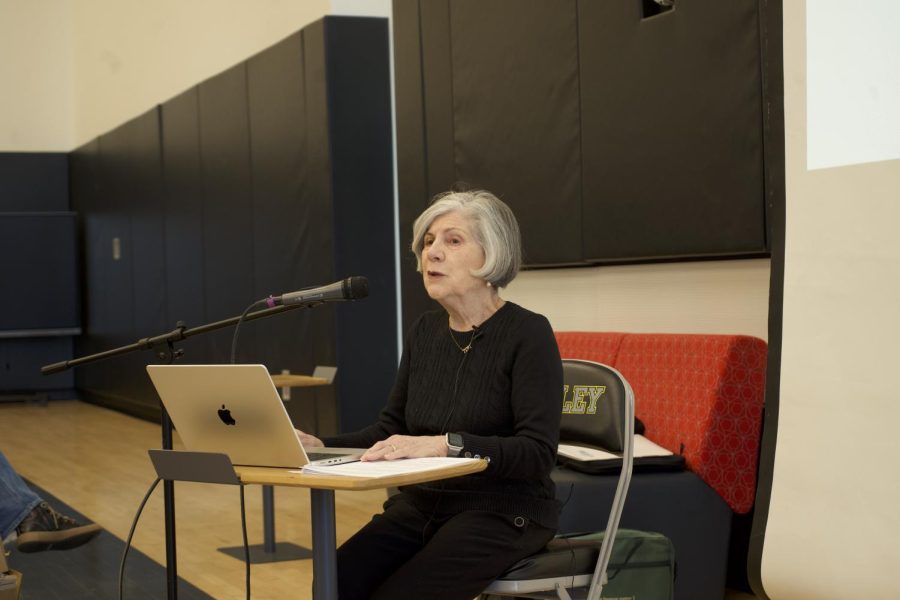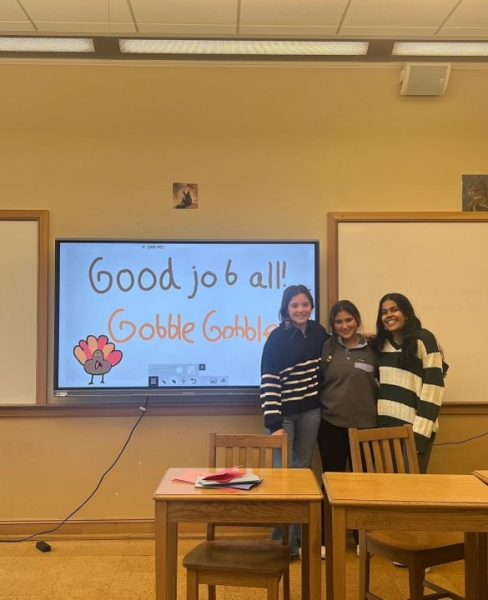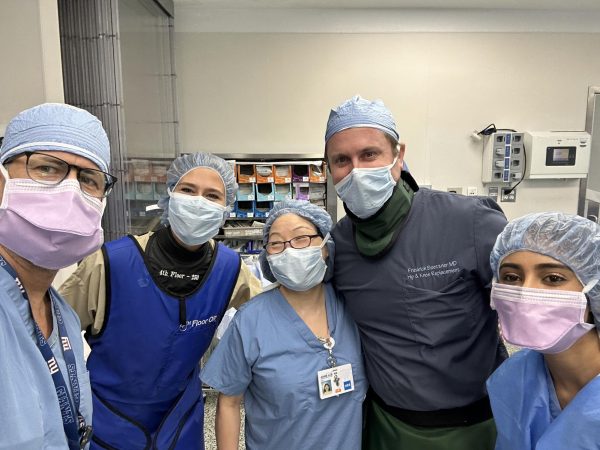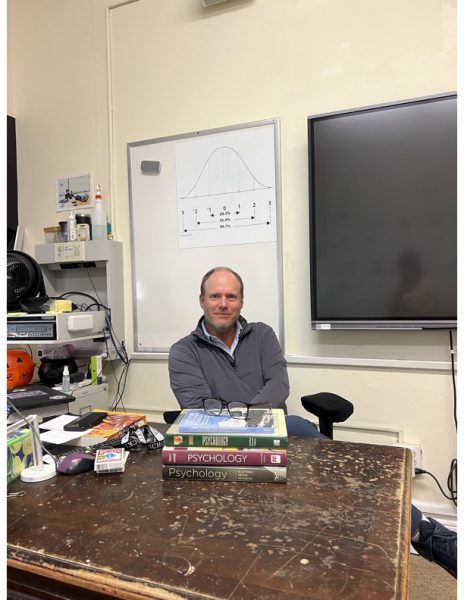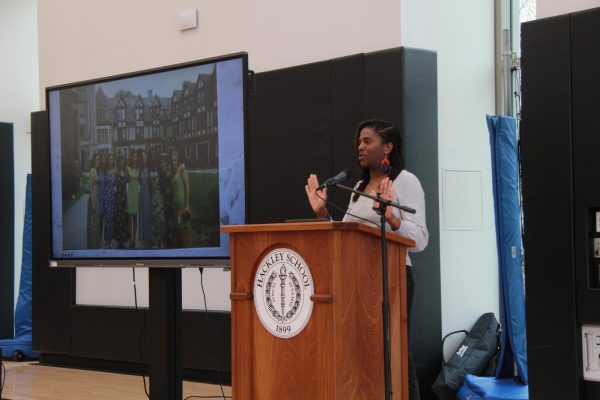A Survivor, Not a Victim
Annie Kleinhaus shares her Holocaust survival story.
Credit: Joshua Lee
Holocaust survivor Annie Kleinhaus shares her inspirational story in a Middle and Upper School gathering. She hopes that many people will gain a new perspective on never giving up on your goals.
“I like to view myself as a survivor, not a victim,” said Holocaust survivor Annie Kleinhaus.
For Holocaust Remembrance Day, January 27, Hackley had the Middle and Upper School faculty and students gathered in the Johnson Center to listen to Annie Kleinhaus share her Holocaust survival story.
Before telling her story, Annie explained that she hopes that people take Holocaust Remembrance Day as a time to reflect and learn about the past to commemorate the horrible genocide that the Holocaust was. She hopes that her story will be “food for thought” about the importance of education while a person is young.
She also prefaced her story by saying that she is a lucky survivor who is able to share her survival story and she encourages people to never give up, regardless of their circumstances.
Annie, who is now 86 years old, was born in Poland in 1937. She explained how when she lived in Poland she experienced poor circumstances and Jewish people were treated badly.
Because of this, her family moved to Antwerp, Belgium, but unfortunately in 1940, Belgium surrendered to the Nazis causing her and her family to flee to France.
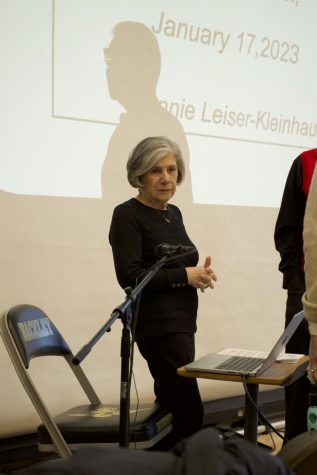
Holocaust survivor Annie Kleinhaus took the Middle and Upper School through a slideshow presentation to give the viewers a visual while they listened to her story.
Her trip with her family to France was treacherous, and she was forced to run in the forest in the middle of the night, scared for her life. While in France, they were forced to wear the Jewish star pinned to them everywhere they went so that they could be identified as Jewish.
She explained how life for Jews was dangerous and many of them were jailed and placed in camps. She said that once a Jew went to a transit camp they would usually end up in a concentration camp, which would be an almost guaranteed death.
Although she was young, she said that she could still feel the stress and fear of death through her parents.
When she was around the age of seven, her parents sent her to an orphanage where Jewish children could be hidden. At the orphanage, she cried every night missing her family and had no hope for her survival. The conditions at the orphanage were horrible, and the kids were freezing, hungry, and caught things such as scabies and lice.
She then left the orphanage and moved to Italy where she began to feel a slight degree of safety and explained how the Italian soldiers were super nice to her, even giving her things such as toys. In Italy, she still could not shake the feeling of fear and often had nightmares of the past that caused her to feel unsafe. In 1943, Italy surrendered to the Nazis, leaving Annie and her family looking to find a new, safe home.
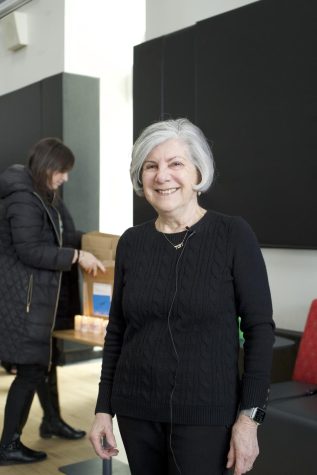
Annie Kleinhaus is happy and grateful to have the ability to share her story with others and be a source of inspiration for them.
Annie and her family decided to move to Switzerland. Along the way to Switzerland, her father was captured when he went to grab his prayer supplies and was sent to a camp. This left Annie’s mom crumbling in sadness, and for Annie, this was hard to watch because she described her mother as her only “pillar of strength” during these hard times.
In Switzerland, Annie and her mom rented an attic from an anti-Nazi family. Annie began to attend school and receive an education. She said that although she was happy spending time with her new friends when she would get home, reality would make itself present, and she would feel fear of getting caught and set to a camp. While in Switzerland, she had to fake being Catholic and even described the irony in her feeling safe in a Catholic church.
On May 5th, 1945, she finally gained her liberation and could live a life without the fear of death. When this happened, she was fortunately reunited with her father but described him as almost unrecognizable due to the harsh conditions he endured in the concentration camp.
A main takeaway she hopes people gain from her story is to always start goals despite rejection and fear of rejection.
She also reiterated that she is not a victim, but feels tremendously lucky and grateful for people to be able to learn and listen to her story and the tragedy of the Holocaust.

